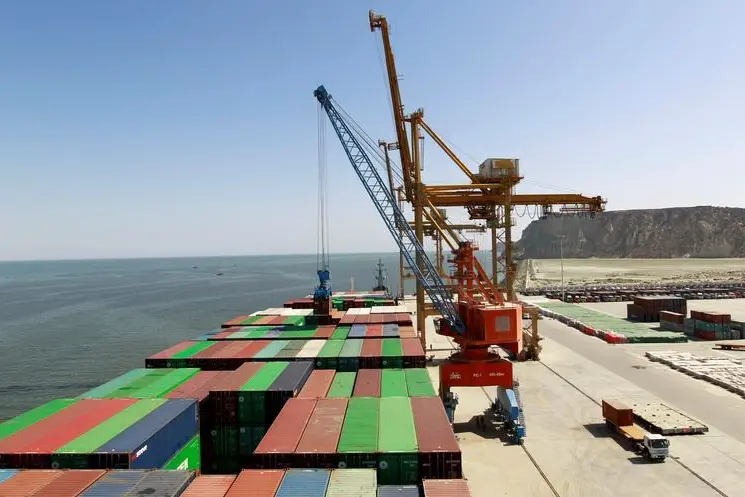PHOTO
(The opinions expressed here are those of the author, a columnist for Reuters.)
LAUNCESTON, Australia: China's imports of major commodities in November appeared unambiguously strong, but delving into the details shows a more nuanced picture amid ongoing uncertainty.
Imports of energy commodities crude oil, natural gas, coal all showed strong gains from the prior month, as did metals such as copper and iron ore, according to official data released on Wednesday.
There is a case that some of the strength in commodity imports is because of optimism that China's economy will soon start to feel the benefits of Beijing's stimulus efforts, as well as moves to relax the strict COVID-19 measures that have acted as an anchor on growth so far this year.
But equally there are seasonal and other factors at work that provide a temporary boost to imports, and the outlook for coming months is clouded by a slowing global economy crimping exports and a fear that COVID-19 cases will increase at a pace too fast to allow the ongoing easing of restrictions.
Crude oil is a good example of this dynamic, with November imports hitting a 10-month high of 11.37 million barrels per day (bpd), up 12% from both October and November last year.
That would appear to be a strong outcome, but once again the devil is in the detail.
Part of the jump in crude oil imports can be explained by a surge in exports of refined fuels.
Shipments of products rose to 6.14 million tonnes in November, the highest since April last year and a jump of 37.7% from October and 46.4% from November 2021.
Using the BP conversion standard of 8 barrels of product to one tonne of crude gives approximate refined fuel exports of 1.64 million bpd in November.
This is some 490,000 bpd higher than the 1.15 million bpd of refined fuels exports in October.
While there is a lag between imports of crude and exports of products to account for refinery processing and transportation, it's likely that a good chunk of the additional crude imported in November over October was re-exported as refined products.
In addition to higher fuel exports, two new refining units with a combined capacity of 720,000 bpd have started in China in recent weeks.
These units will have needed to build up operational inventories prior to starting, and given that refineries may have up to three weeks of crude as a working stockpile it suggests that as much as 15 million barrels of additional crude has been imported in recent months.
It's possible that crude imports will remain relatively robust in coming months, especially if refiners continue to export fuels to take advantage of strong regional profit margins, especially for diesel.
But much will also depend on the success of China's economic stimulus and the relaxation of COVID-19 restrictions.
MIXED PICTURES
Coal imports also looked strong in November, rising to 32.3 million tonnes from October's 29.18 million, the gain being attributed to utilities ensuring sufficient supplies for winter.
But November's imports were still down 7.8% from the same month in 2021 and the arrivals for the first 11 months of this year dropped 10.1% compared to the same period last year.
It was a similar story for iron ore imports, with a solid 10.7% gain in November to 98.85 million tonnes, up from October's 94.98 million.
But November arrivals were down 7.8% from the same month in 2021 and year-to-date imports were 2.1% lower.
There are signs that steel mills are re-stocking iron ore ahead of an expected lift in demand in the new year amid optimism that residential construction will get a lift from stimulus measures.
Copper presents a dilemma, with imports of both refined metal and ores and concentrates picking up in November despite the darkening outlook for the global economy.
Imports of unwrought copper and copper products, including anode, refined, alloy and semi-finished copper products, were 539,901 tonnes in November, up 5.8% from imports of 510,402 tonnes in the same month last year.
The increased imports also happened even though the arbitrage window with London-traded copper closed during the month, but it's likely this will have more of an impact on December arrivals.
For now, the copper market seems to be taking the view that China's economy will recover enough to offset any losses from exports to the rest of the world.
Although, given that China's total exports shrunk 8.7% in November from a year earlier, the worst performance since February 2020, the domestic economy is going to have to put in a stellar performance in coming months if higher copper imports are to be maintained.
(Editing by Kim Coghill)





















